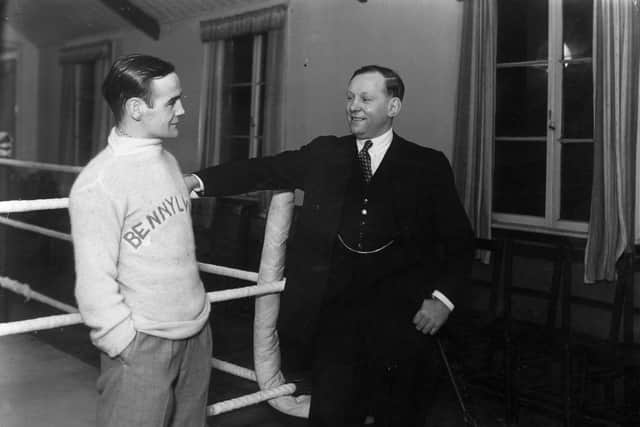Scotland's first world boxing champion: A Gorbals-born star who fell from grace and left a tarnished legacy
and live on Freeview channel 276
Benny Lynch is one of the Gorbals most famous sons with the boxer's legacy, despite his sporting prowess, still being a divisive subject till this day. He began life in a Gorbals tenement flat in 1913 at 17 Florence Street as the son of John Lynch, railway surfaceman and Elizabeth Alexander.
Lynch learned to fight growing up during the Great Depression and made his professional debut at the age of 18 in April 1931. His career didn't get off to the best of starts as he only won eight of his first 15 fights but that did not deter the Gorbals boy from reaching the very top of boxing.


Advertisement
Hide AdAdvertisement
Hide AdAfter a notable victory against the experienced Jock Joe Aitken on points in 1932, he would begin an incredible unbeaten run the following year which was to last three years with wins coming against the likes of Bert Kirby, Maurice Huguenin and Jim Campbell amongst others which lead to him winning the Scottish flyweight title The year 1935 was to be a memorable one for Lynch as he began the year marrying Annie Lynch McGuckian on 13 February in Gretna. Less than seven months later, Benny was crowned world champion after he defeated British, European and World flyweight champion Jackie Brown during a legendary fight in Manchester which was stopped in the second round.
Huge crowds from Glasgow had headed south to see the fight with Lynch being given a heroes welcome home to his native city. After successfully defending his title, things were only to get better for the Gorbals boxer in 1937 after he defeated Small Montana to become undisputed world flyweight boxing champion.
After struggling with weight and other personal issues, the boxer was stripped of his titles. He was knocked out for the first time by Aurel Toma in 1938 and never entered the ring again - effectively retiring from boxing at 25. Lynch struggled with alcoholism for the rest of his life and passed away at the age of 33 with a crowd of around 2,000 attending his funeral at St. Kentigern's Cemetery.
Although his career was only short, his achievements in boxing deserve hagiography and there are books, plays and documentaries about Lynch's life.
Advertisement
Hide AdAdvertisement
Hide AdBenny Lynch was convicted of assault on women and young girls. Lily Greenan, deputy director of Zero Tolerance, the charity working to end male violence against women, responded to a campaign to erect a statue to the boxer saying: "We understand that the community would like a statue of Benny Lynch as he is a local hero, but we would strongly question if this is the sort of local hero that we should be commemorating.
"He was convicted of two separate violent assaults on women and young girls. These actions, and the actions of all violent men, should not be excused or forgotten because they are or were talent sportsmen, popular politicians, or celebrities of any sort."
Comment Guidelines
National World encourages reader discussion on our stories. User feedback, insights and back-and-forth exchanges add a rich layer of context to reporting. Please review our Community Guidelines before commenting.
